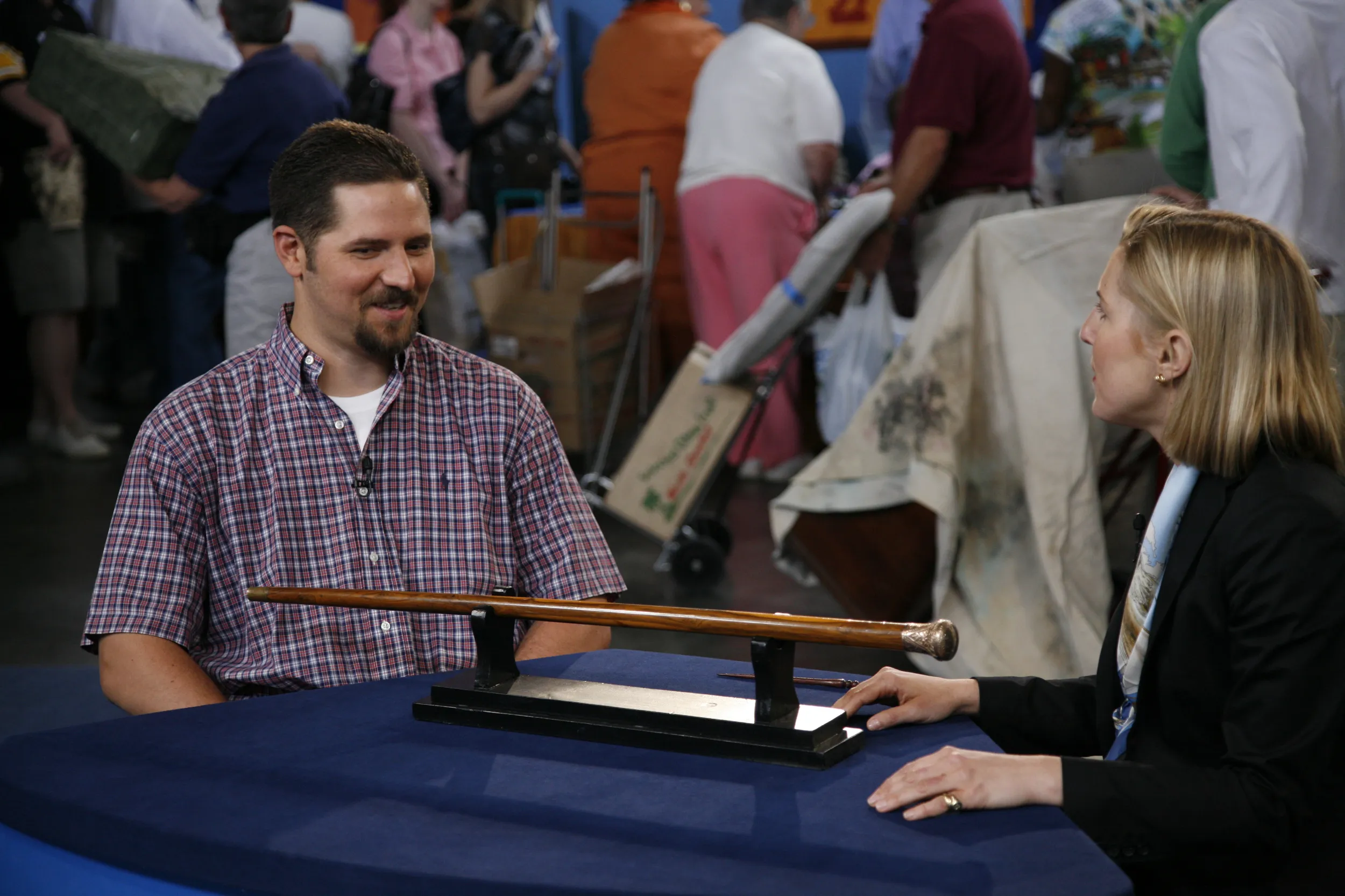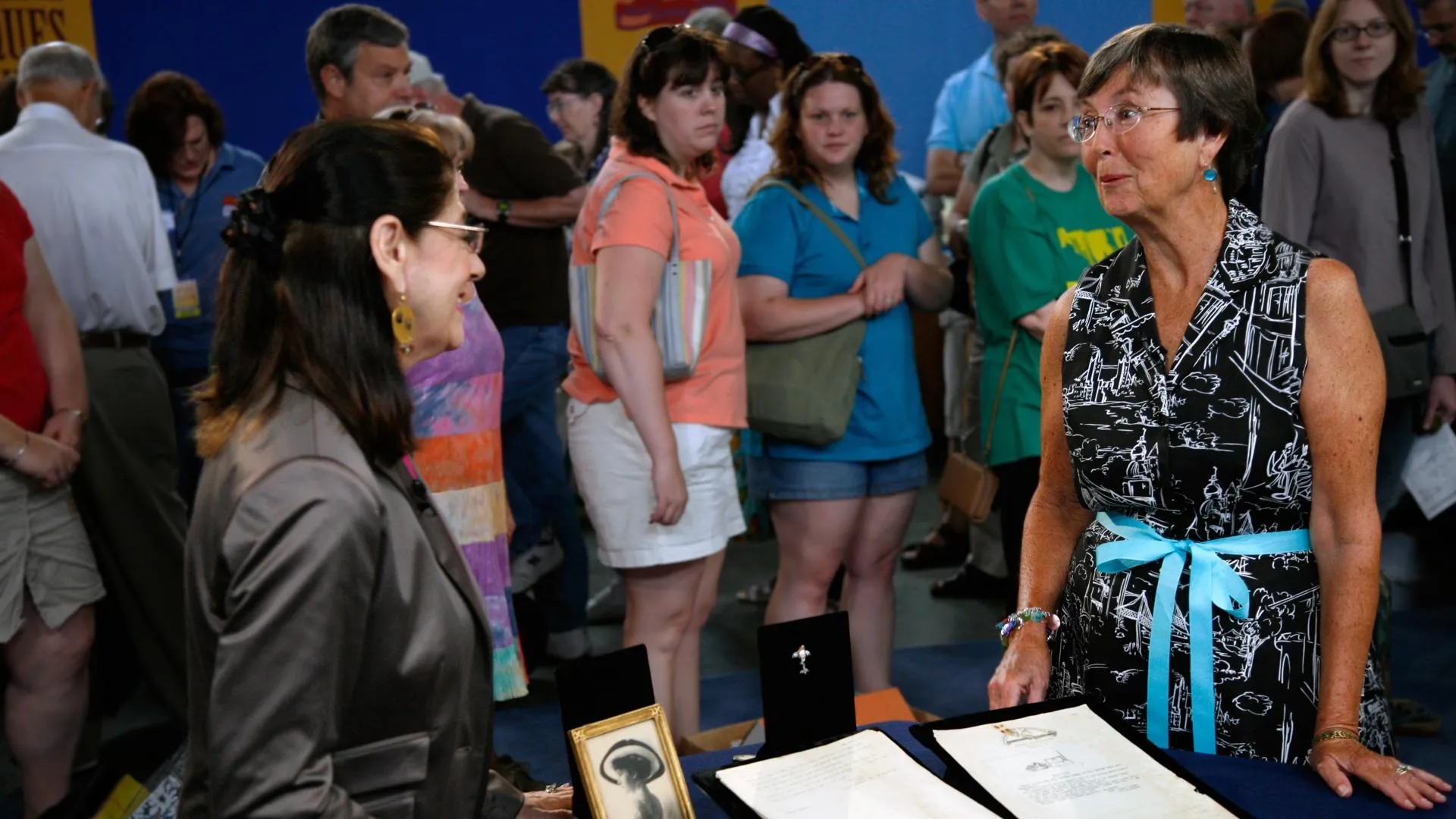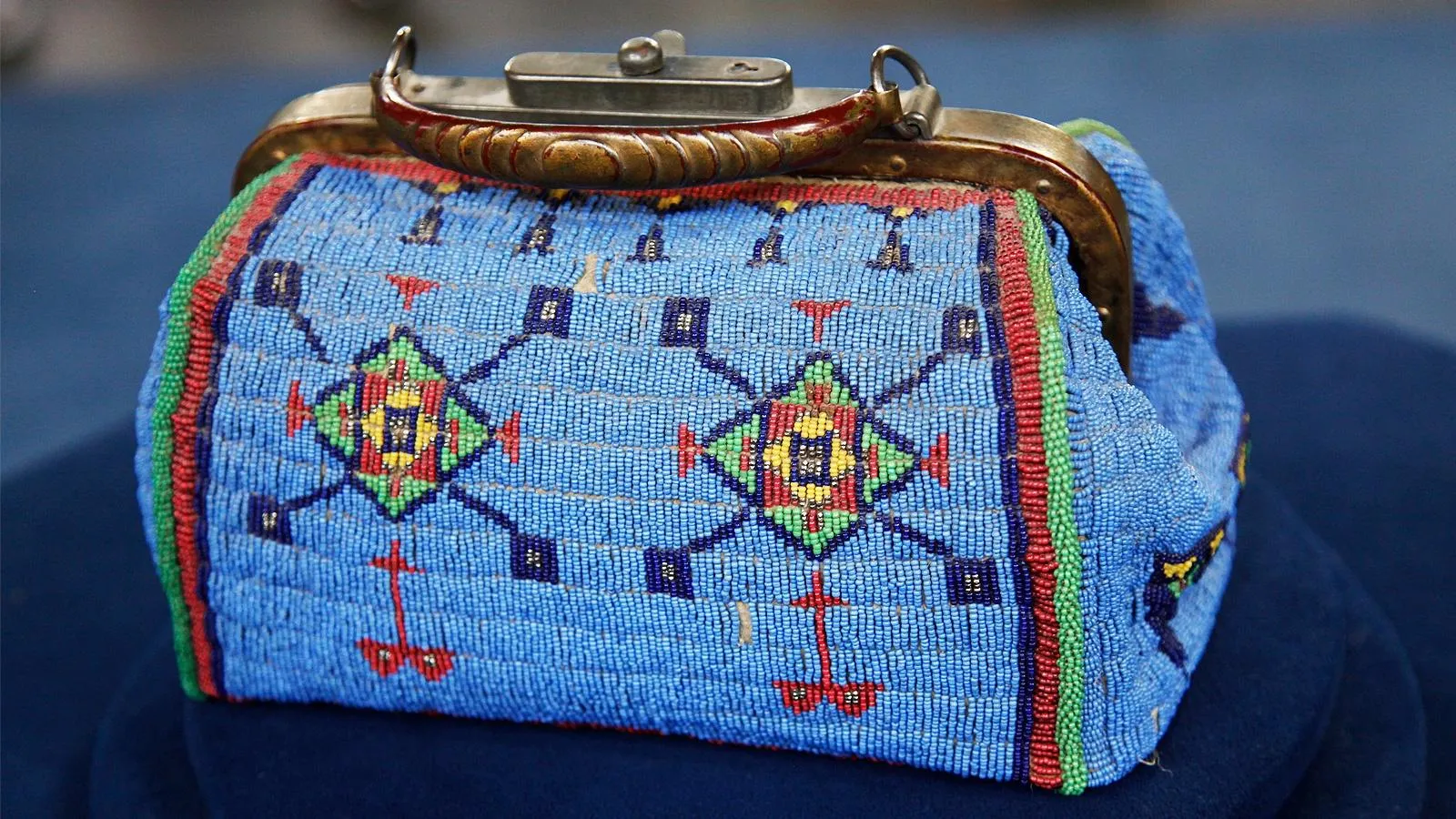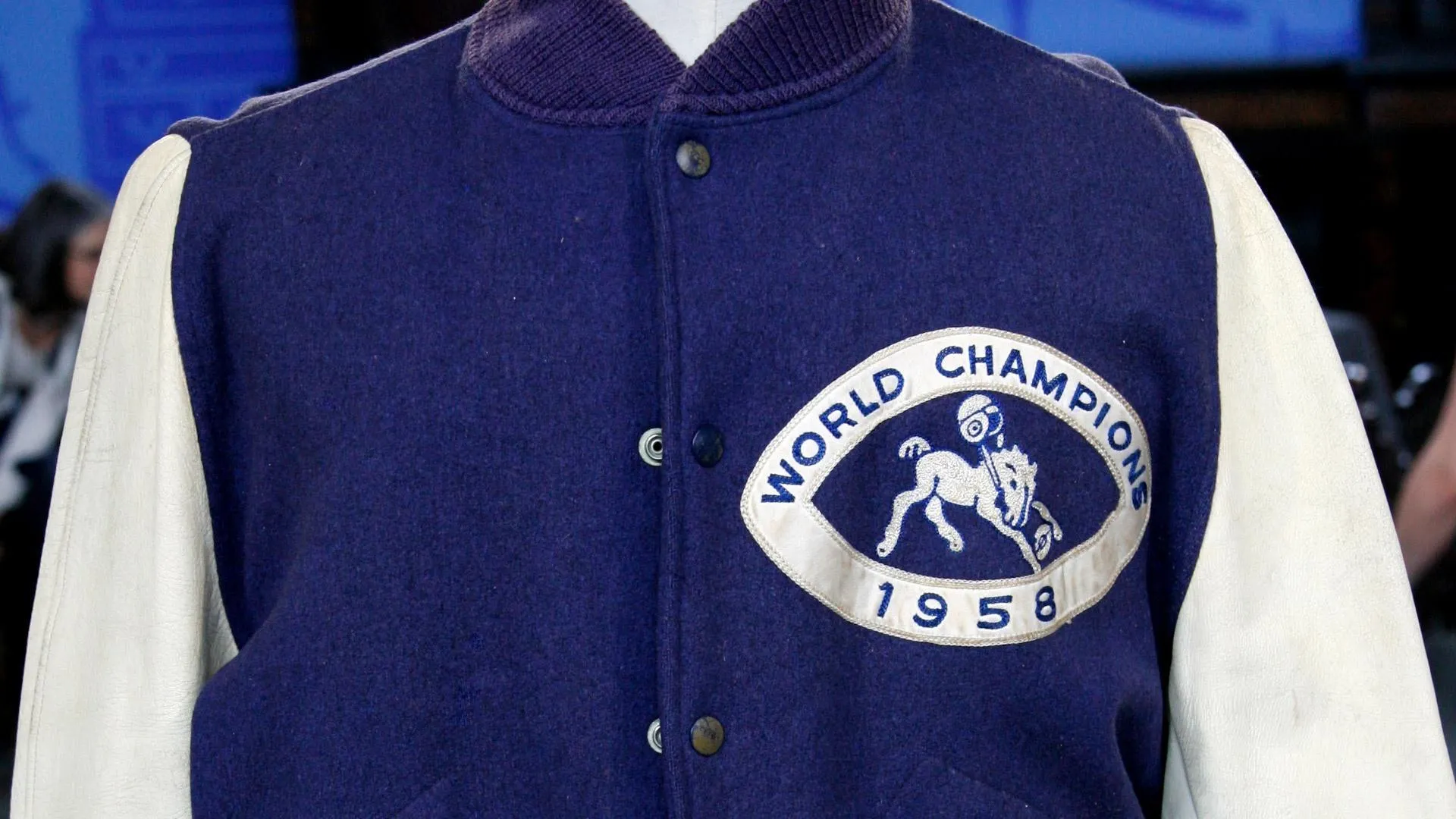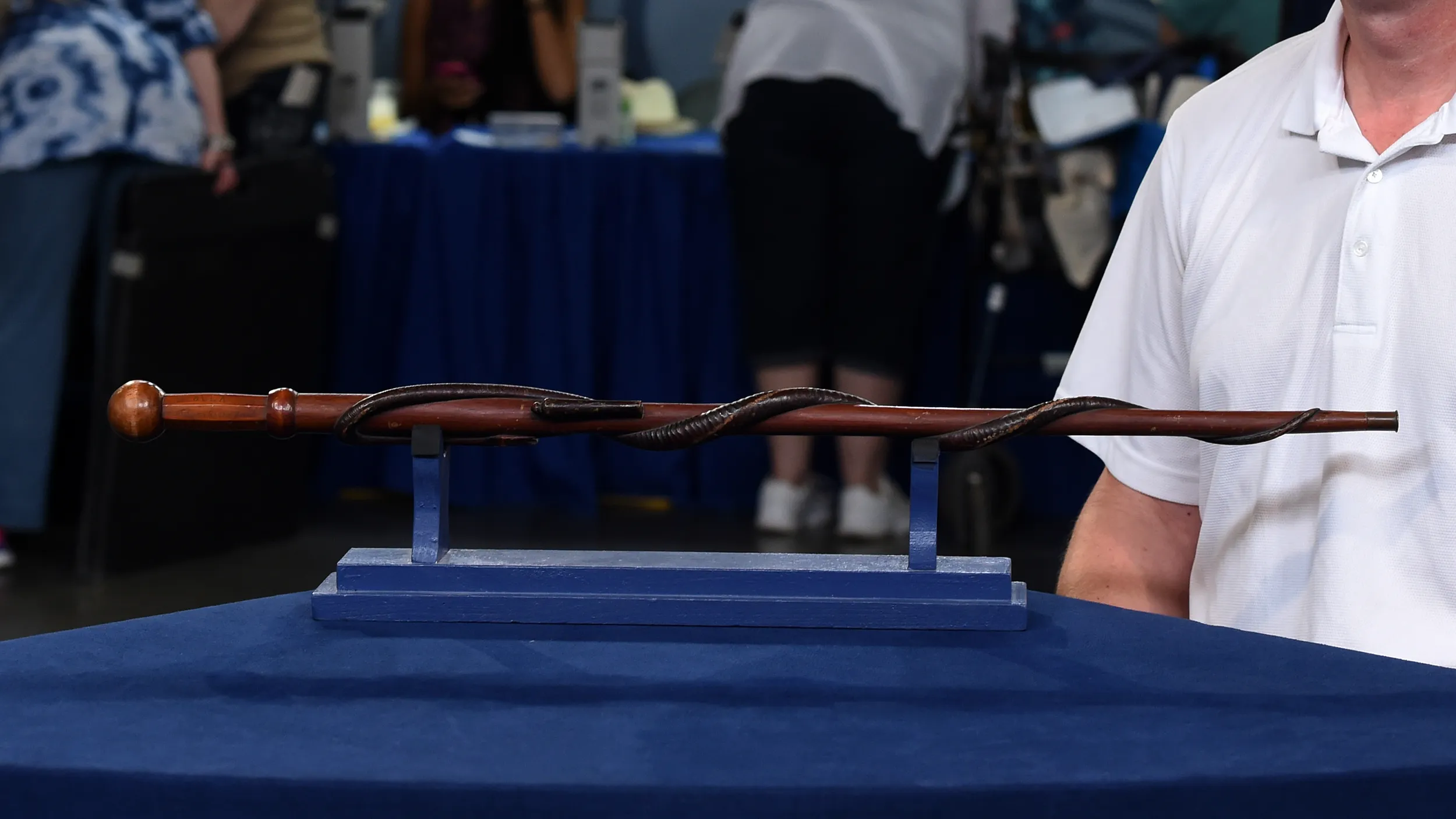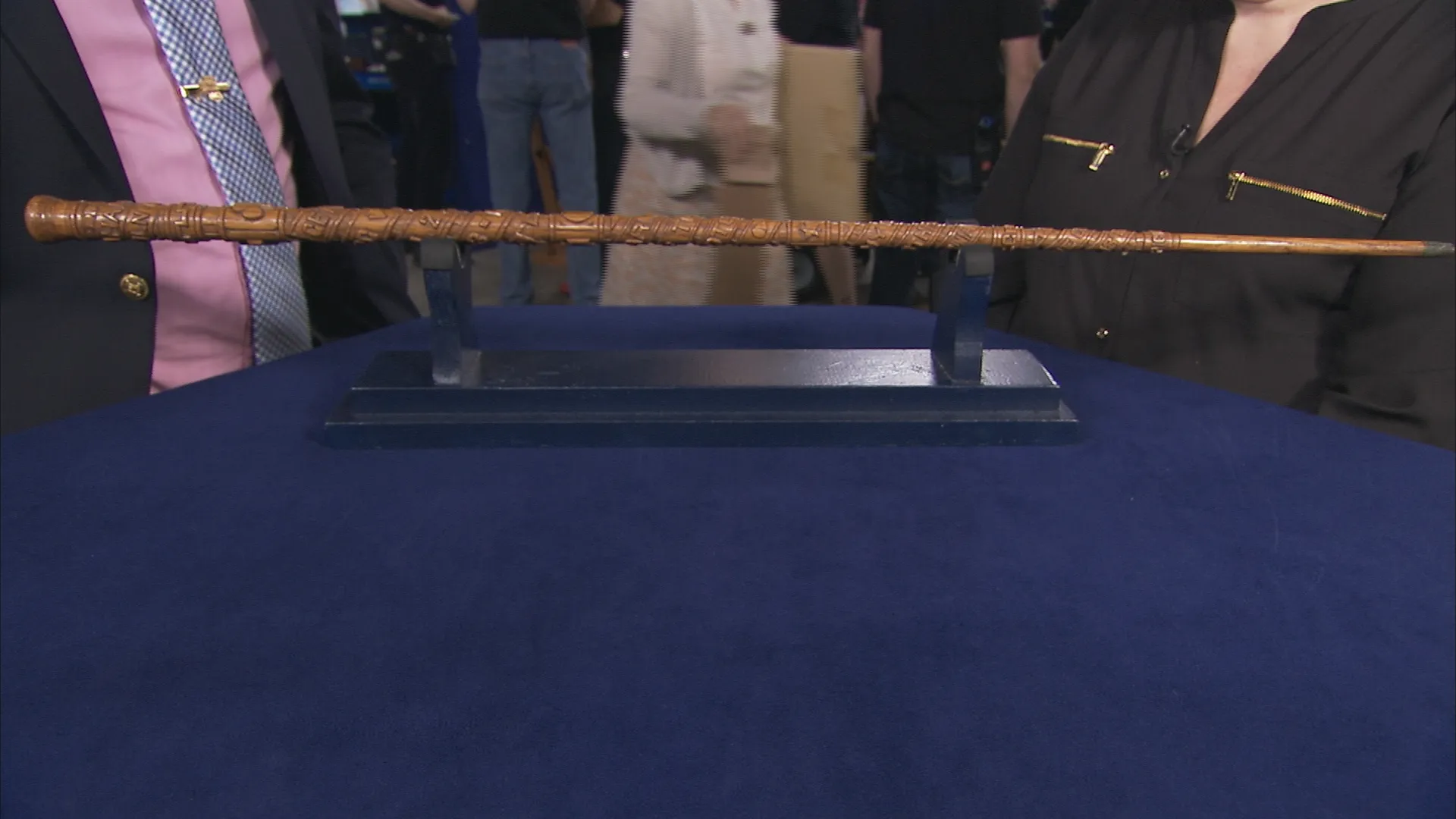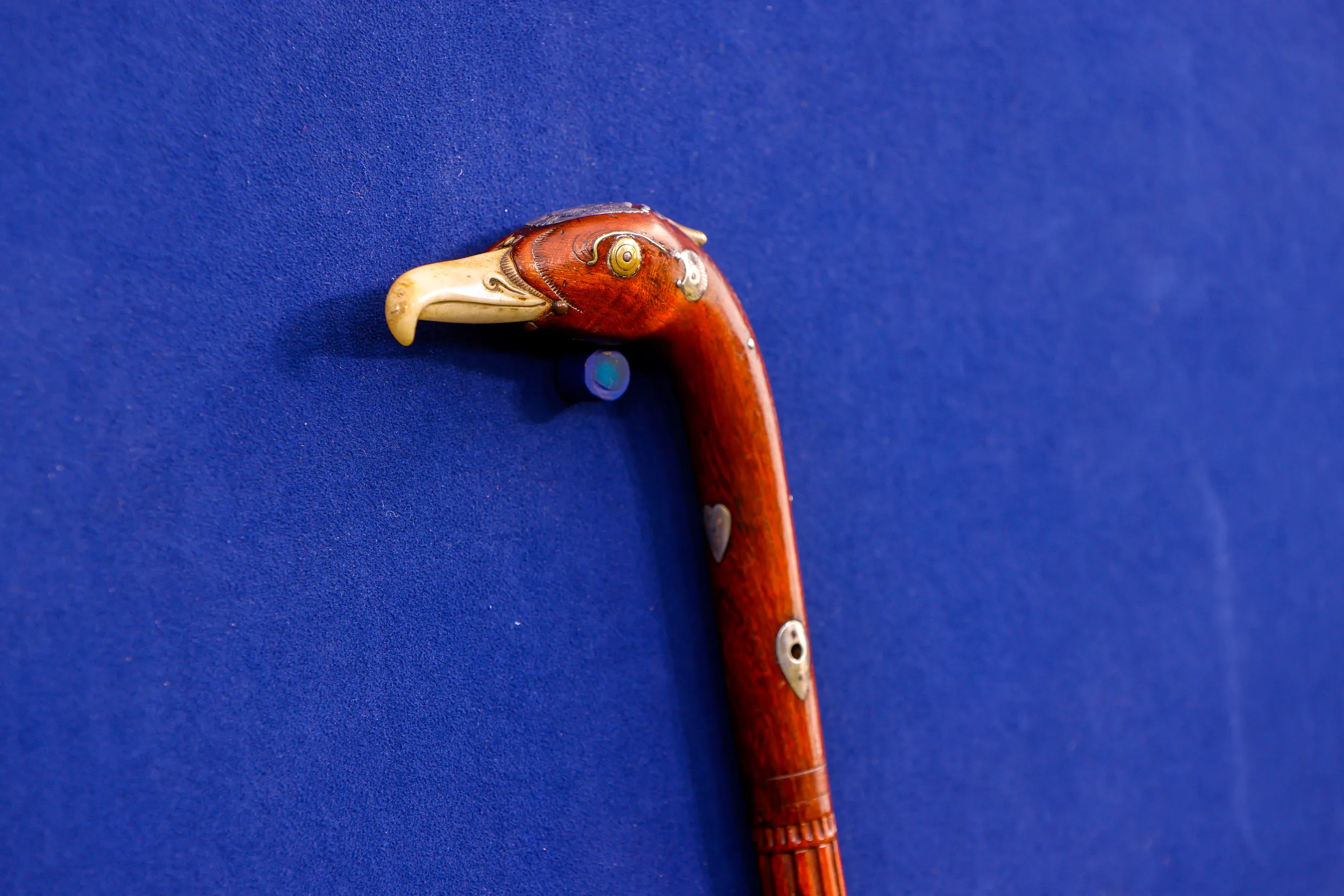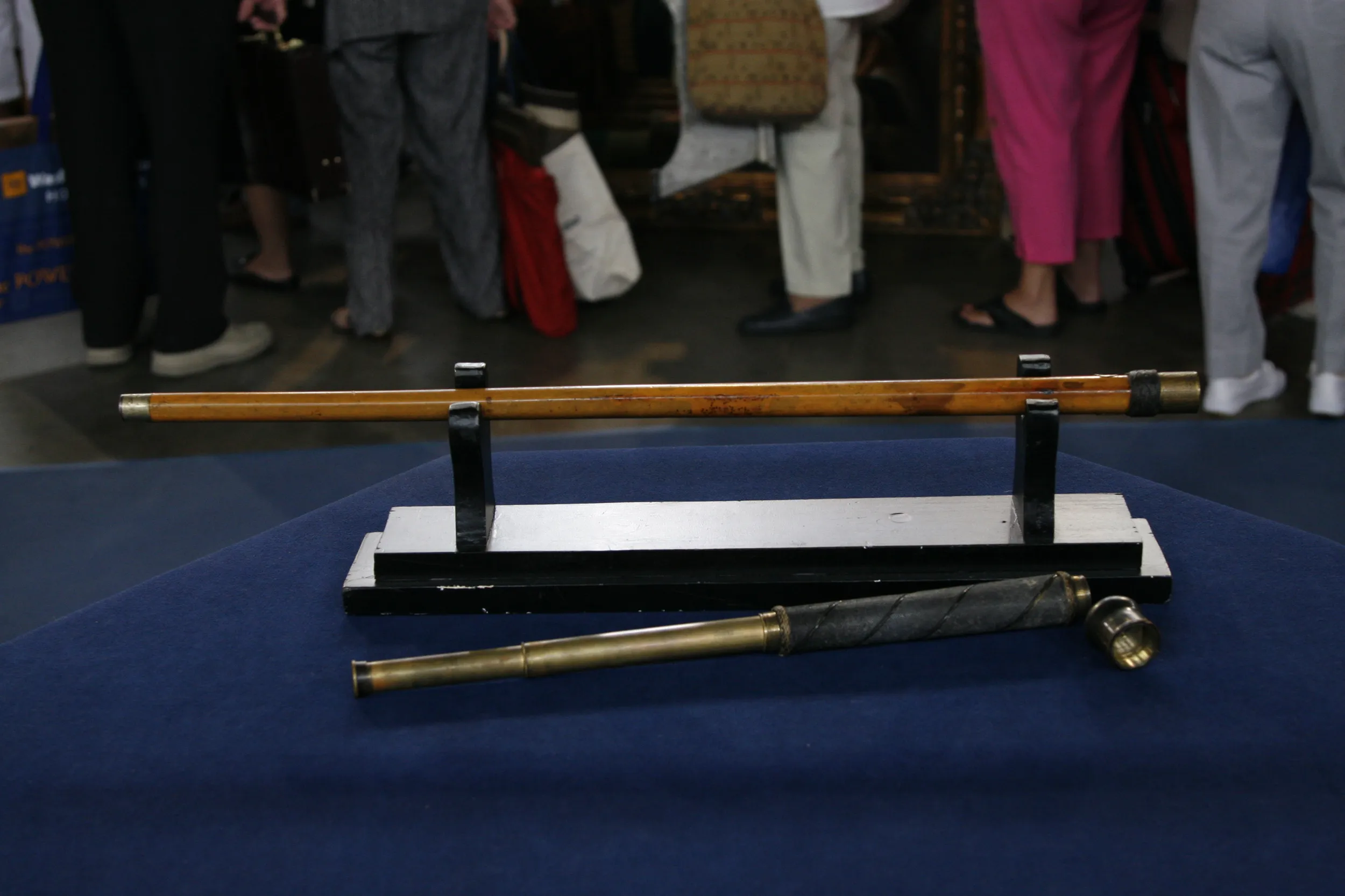GUEST: The cane was passed down to me after my grandfather passed away.
APPRAISER: Yeah.
GUEST: It was given to him by his mother, and it was given to, I believe, my great-great-grandfather...
APPRAISER: Mm-hmm.
GUEST: From Dr. Mudd. Dr. Mudd set Booth's leg after he assassinated Lincoln.
APPRAISER: Yeah. And what's the connection between Mudd and your family?
GUEST: He gave it to his cousin, I believe.
APPRAISER: Yeah.
GUEST: It's Sarah Mudd.
APPRAISER: Mm-hmm.
GUEST: Who would have been... I'm not sure how far back to the grandparents' side...
APPRAISER: Yeah, that's all right. Yeah.
GUEST: But our family, I guess, is somewhere linked to the Mudd family. Henry Clark, who is, I believe, my great-great-grandfather, he did some legal work for Dr. Mudd after he was incarcerated, and that was given in appreciation for it.
APPRAISER: Because he set his leg, therefore he aided and abetted a criminal.
GUEST: Right.
APPRAISER: And was tried in military court, and was sent to prison.
GUEST: Yes.
APPRAISER: And that was actually mentioned on this here. It says "To Henry A. Clark from Dr. S.A. Mudd." And this says Dry Tortugas, which is where the prison, Fort Jefferson, was.
GUEST: Right.
APPRAISER: Which is on, off the coast of Florida, and the date is 1869. While he was imprisoned for aiding and abetting Booth, he was in a carpentry shop.
GUEST: Oh, okay.
APPRAISER: He spent a lot of time, in addition to being a doctor, carving and turning wooden objects. And he gave some of them to his guards.
GUEST: Mm-hmm.
APPRAISER: And he gave them to other people as a gesture of thanks. And when there was a huge yellow fever epidemic in the prison, the prison doctor died. And because he was a doctor, he volunteered his services to help and save so many people's lives.
GUEST: Mm-hmm.
APPRAISER: And actually, some of the soldiers wrote letters to the president...
GUEST: Wow.
APPRAISER: ...to say, "You really should pardon this person, he's done wonderful things." And he was pardoned by President Johnson in 1869, which is the date on the edge of the cane.
GUEST: (chuckles) Interesting.
APPRAISER: Now, if I just saw this cane, which was a very typical gift in the 19th century-- it's, you know, lovely tropical hardwood-- you'd probably be looking at maybe $150.
GUEST: Okay.
APPRAISER: But with the Booth connection, with the Mudd connection, you've got this fantastic artifact of a time for someone who had such an important role and still an enduring sort of question in U.S. history. Value-wise, you're probably looking at $5,000...
GUEST: Wow.
APPRAISER: ...to $7,000. It could easily fetch $10,000, perhaps, at auction.
GUEST: (chuckles)
APPRAISER: Because of the Lincoln connection. This is a case where the story makes, gives it the value.

